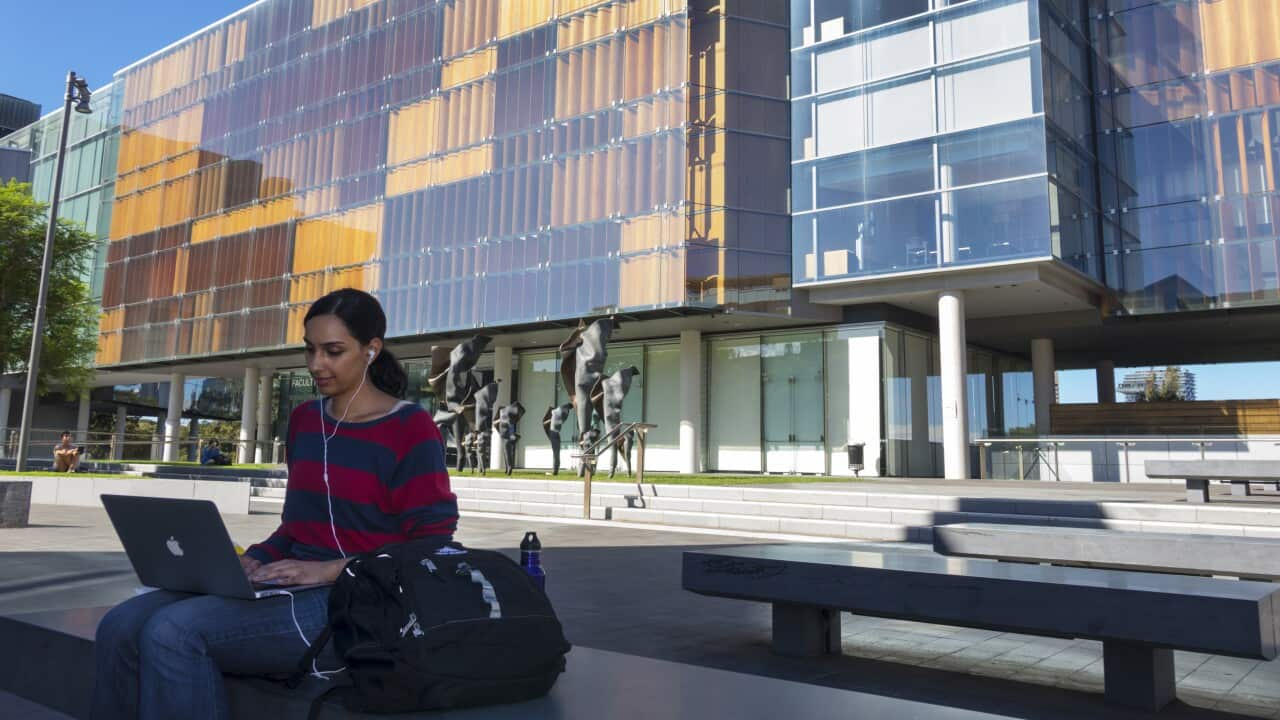Key Points
- The Times Higher Education publishes its World University Rankings annually, evaluating institutions using criteria like teaching, research quality, and international outlook.
- The 2024 rankings, featuring 1,904 universities from 108 countries, reveal six Australian universities in the top 100.
- Although several Australian universities have experienced a decline in their ratings, international students claim it won't affect their decision.
Australia boasts six universities within the top 100, and 11 within the top 200.
The University of Melbourne remains the top-ranked Australian university in 37th place, down slightly from 34th in 2023.
Monash University (54th), the University of Sydney (60th), Australian National University (67th), the University of Queensland (70th), and UNSW Sydney (84th) have also maintained their positions within the top 100.
The University of Adelaide experienced the most significant decline, dropping 23 places to 111th spot.
The University of Queensland also experienced a decline in its ranking, dropping from 53rd to 70th place.
What is the reason behind the drop in Australia's university rankings?
Ben Miller from The Times Higher Education explained to SBS Hindi several factors contributing to the decline.
"Firstly, more universities are participating in the ranking than ever before – 1,904 - more than 100 more than last year. This means there’s much more competition," Mr Miller said, adding that universities need to exert greater effort to maintain their positions in the rankings.

University of Melbourne campus. Source: Getty / Jeff Greenberg
"Australia’s average rank improved from 311 to 309. Australia’s average overall score improved from 51.8 to 55.4," he further elaborated.
He highlighted that the another reason for the change in Australian universities' scores was the research quality metric. A one-point drop in citation impact significantly impacted scores because this metric accounted for 15 percent of the total score.
LISTEN TO

'A lifesaving skill': International students urged to join university swim programs
SBS Hindi
27/09/202309:43
"While Australian universities over-performed this year compared with the global average, they did so much less than last year in the new metrics – research strength and research influence," he added.
"Fifthly, it has been well reported that Australia has experienced very low levels of research funding: ," he explained.
Number of student visas granted in the last financial year
In the 2022-23 period, the Department of Home Affairs approved almost 500,000 student visas, which is twice the number granted in the previous year, as per their records.
LISTEN TO

Why are Indian students choosing to study in Australia?
SBS Hindi
01/03/201709:52
Mr Miller acknowledges Australia's status as a top international student destination, but warns of increasing competition.
Despite Australian higher education being a global success, international metrics, especially for students, have declined due to the country's COVID response and lockdowns, impacting its global standing, he explained.
From the viewpoint of an expert and international students
In 2021, Dr Andrew Deuchar from the University of Melbourne highlighted in his 'Indian Student Mobility to Australia' report that besides factors such as post-study working rights and employment opportunities, strong social connections and peer networks significantly influence Indian students when choosing Australia as their study destination.
According to him, the significance of word-of-mouth reputation and social connections has escalated post-COVID.
"International students rely more on peer feedback than an institution's reassurances. Recommendations from fellow students heavily influence their decisions, surpassing even university rankings," he told SBS Hindi.

Even though Australia's education system continues to garner international acclaim, the most recent rankings have caused quite a stir. Credit: Chris Ison/PA/Alamy/AAP Image
"Rankings are one of the metrics that prospective international students consider when deciding where to study, but once they commence their degree a shift in rankings is probably not that significant," he said.
According to him, some studies reveal that high-ranking institutions could pose challenges for international students, while lower-ranked ones offer better support.
"What truly matters is a university's ability to create an enriching and satisfying experience for international students during their time abroad," he pointed out.
For Madhur Modgill, an Indian international student of mechanical engineering at the University of Melbourne, choosing Australia as a study destination was an obvious choice since he had family connections there.

International student Madhur Modgill picked Australia as a study destination due to his family links. Credit: Supplied by Madhur Modgill
He expressed his contentment with the way international students are treated at his university, despite the slight drop in its global ranking in 2024.
Global rankings held little significance for Niharika Singh, an international student studying at the Canberra-based Australian National University (ANU).

Niharika Singh, an international student at the Canberra-based ANU. Credit: Niharika Singh
"I would look at the faculty and the course itself - the content being taught, whether the syllabus is regularly update, whether professors incorporate new developments, and things like that," she added.
On a global scale, seven out of the top 10 universities were from the US, and the UK claimed the first position with Oxford University.



